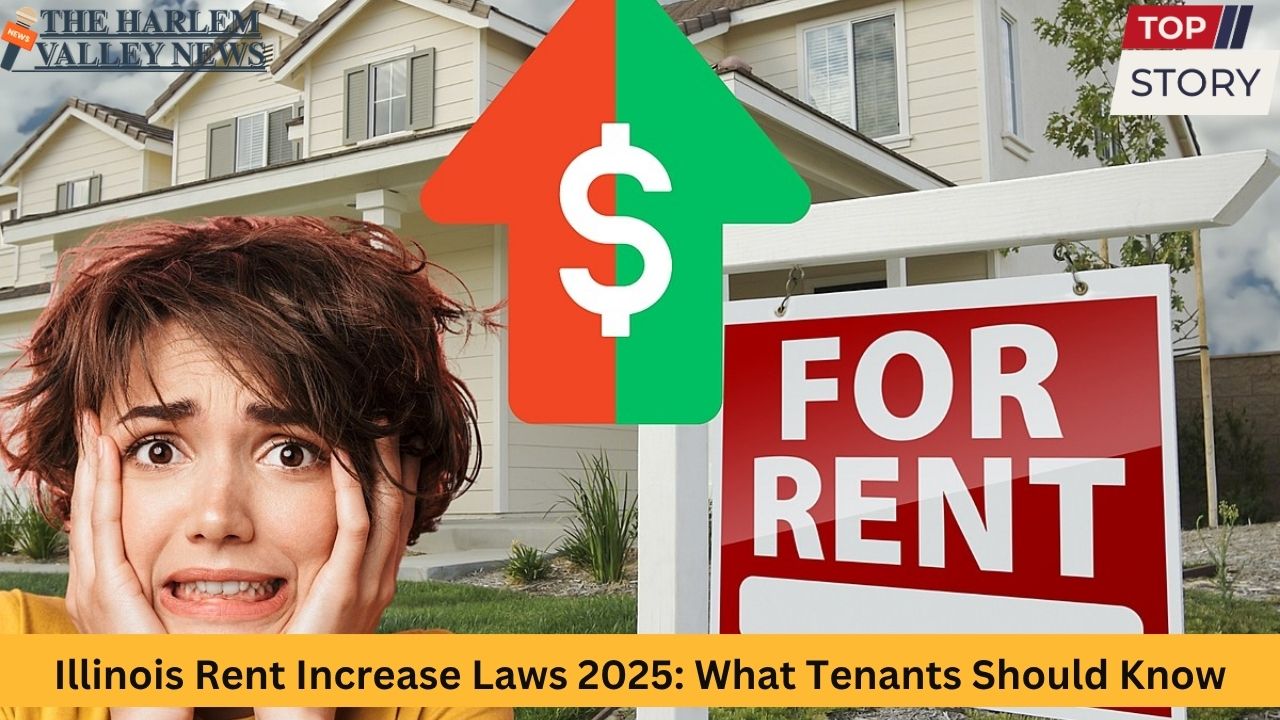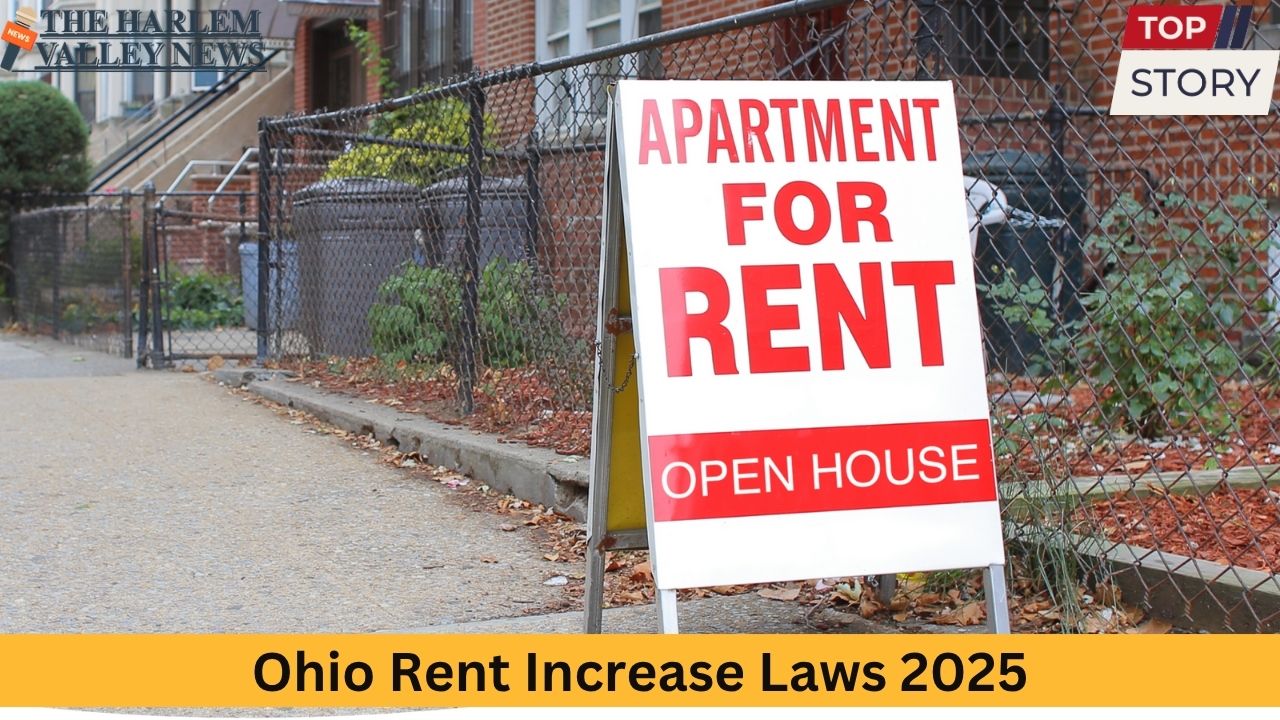As the cost of living and housing continues to rise, understanding the laws and regulations surrounding rent increases is critical for tenants throughout Illinois. With 2025 bringing renewed focus on tenant rights and landlord obligations, knowing your legal protections and responsibilities is more important than ever. Whether you’re renting in Chicago, Springfield, Peoria, Rockford, Naperville, or any of the state’s vibrant cities, staying informed is your best defense against unexpected rent hikes and lease disputes.
This comprehensive guide explores Illinois’s rent increase laws for 2025, providing clarity on limits, notice requirements, and exceptions. We’ll offer an overview of what tenants across the state need to know, using city-specific examples, important statistics, and clear explanations to empower renters navigating the Illinois housing landscape.
Overview of Illinois Rent Laws in 2025
As of 2025, Illinois is generally regarded as a landlord-friendly state, but there are significant protections for tenants, especially in major cities. The primary statutes that govern rent increases are statewide, but municipalities like Chicago have enacted additional measures.
Key Points:
-
Illinois law does not impose a statewide limit or cap on how much a landlord can increase rent for most residential properties.
-
Rent increases are only allowed at the end of a lease term or on a “month-to-month” basis with proper notice.
-
Landlords cannot increase rent as a form of retaliation or discrimination.
Key Cities: Rent Regulations Across Illinois
Illinois is a diverse state, and tenants’ experiences often depend on where they live. Here’s how some major cities approach rent increases:
Chicago
Chicago, home to nearly 2.7 million people, has more robust tenant protections than the rest of Illinois. The Chicago Residential Landlord and Tenant Ordinance (RLTO) governs most rental properties, requiring landlords to provide at least 30 days’ written notice for any rent increase. There is no cap on the percentage of increase unless future city ordinances introduce such a provision.
Springfield
Springfield, the state capital, has a population of around 114,000 and follows the statewide rules. There are no local rent control ordinances, but landlords must still provide proper notice: typically 30 days on a month-to-month lease.
Peoria
Peoria, with nearly 110,000 residents, does not have local rent control. The city follows the state requirement for notice but otherwise allows landlords significant flexibility in setting rents.
Rockford
Rockford is Illinois’s third-largest city with about 145,000 people. Like most Illinois cities outside Chicago, there are no specific local laws limiting rent increases.
Naperville
Naperville is an affluent suburb west of Chicago with a population exceeding 149,000. Again, no local ordinances limit rent increases, but the required legal notice must be given.
Notice Requirements for Rent Increases
Notice periods are crucial in Illinois. They provide tenants time to prepare for a rent increase or to consider moving.
Standard Notice Rules:
-
Month-to-month leases: Landlords must provide written notice at least 30 days before a rent increase takes effect. This must be written and delivered per lease or legal requirements.
-
Fixed-term leases: The landlord cannot raise rent until the lease ends, unless the lease specifies otherwise. A new lease or renewal reflecting the higher rent is required.
-
Chicago-specific: 30 days’ written notice for month-to-month, with strict adherence to City Ordinance procedures.
Example:
If a tenant in Aurora (population: 181,000+) rents month-to-month and the landlord wants to increase rent from $1,200 to $1,300 per month, they must serve written notice at least 30 days prior to the increase.
Rent Control: Does Illinois Have It?
Illinois does not have statewide rent control. In fact, the Illinois Rent Control Preemption Act, passed in 1997, prohibits towns and cities (except for home rule municipalities under certain conditions) from enacting local rent control measures. This means that, outside of voluntary programs or newly adopted ordinances pending legal interpretation, most of the state is without formal rent caps.
Recent Developments:
There have been repeated legislative attempts to lift the ban on rent control, especially in response to the housing affordability crisis in Chicago and other large cities. However, as of 2025, such efforts have not resulted in state-level or major city-level rent control, though advocacy remains strong.
Reasons for Rent Increases in Illinois
Landlords in Illinois may raise rent for various reasons:
-
Market Rate Adjustments: As demand surges in cities like Chicago, Naperville, and Champaign, landlords often adjust rents to reflect market trends.
-
Maintenance and Improvements: If a landlord has made significant renovations or upgrades (new appliances, renovated bathrooms, energy-efficient windows), a rent increase may follow.
-
Increased Taxes or Insurance: Higher property taxes, particularly prevalent in Cook County, or increased insurance costs can prompt landlords to raise rents.
-
Inflation: In 2024, the inflation rate in Illinois averaged 4.2%, impacting housing costs.
-
Profit Motive: Landlords may simply seek to increase profits, with no specific law prohibiting this as long as notice is given and motives are not retaliatory or discriminatory.
Cities with Local Protections or Proposals
While statewide rent control remains prohibited, several Illinois cities are exploring or have implemented additional tenant protections.
Evanston
Evanston, population 78,000+, recently introduced a rent stabilization task force to examine possible local solutions, including enhanced notice periods and mediation programs.
Oak Park
Oak Park, just west of Chicago, has expanded tenant resources and advocacy, pushing for renter protections such as legal counsel for tenants facing large rent hikes.
Urbana and Champaign
In these college towns, with populations of 38,000 and 87,000 respectively, tenant unions have pressured local leaders for just-cause eviction rules and improved notice requirements for rent increases.
These efforts demonstrate a growing statewide push for tenant empowerment, especially in areas with scarce affordable housing.
How to Respond to a Rent Increase
If your landlord serves you with a rent increase notice:
1. Review the Notice
-
Ensure the notice is written.
-
Confirm it provides at least the minimum required notice: 30 days for month-to-month leases, or as specified by ordinance in your city.
2. Check for Lease Violations
-
If your lease is fixed-term, rent cannot be increased until the term ends unless you agree in writing.
3. Negotiate
-
Tenants can often negotiate, especially if vacancy rates are high in your area or you have been a reliable resident. Cities like Peoria and Joliet report rising vacancies, strengthening renters’ bargaining positions.
4. Consider Legal Protections
-
Rent increases cannot be retaliatory (for example, in response to a tenant’s complaint to a housing authority) or discriminatory.
5. Explore Relocation or Legal Action
-
If the increase is unaffordable, use the notice period to seek alternative housing or consult with a tenant advocacy group for advice on your legal options.
What Tenants Can Do If Their Rights Are Violated
If you believe a rent increase violates state law or local ordinances:
-
Contact Legal Aid: Illinois Legal Aid Online and Chicago’s Legal Aid Society assist renters facing unlawful or retaliatory rent hikes.
-
Local Tenant Organizations: Many cities have renters’ unions or neighborhood groups that can advise and advocate.
-
File a Complaint: In Chicago, tenants can file complaints with the Department of Housing.
-
Consider Mediation: Some cities offer mediation programs to resolve disputes between landlords and tenants without going to court.
Example: In 2024, over 6,200 complaints were filed by Chicago tenants regarding improper rent increases, leading to mediation or legal intervention in hundreds of cases.
Resources and Assistance for Illinois Renters
Several organizations and government agencies help tenants understand and assert their rights:
-
Illinois Legal Aid Online: Offers free resources for tenants statewide.
-
Chicago Department of Housing: Provides assistance and information on the RLTO.
-
Tenant Unions and Advocacy Groups: Such as the Chicago Tenants Movement, Oak Park Tenants Union, and Champaign-Urbana Tenant Union.
-
HUD’s Illinois Resources: Connects tenants with federal support for fair housing concerns.
-
Local City Halls: Most major cities maintain online renter resource centers.
Conclusion
Illinois, with its rich tapestry of urban and rural communities, remains a state where tenant protections against rent increases are evolving. While rent control remains off the table statewide, major cities like Chicago and local advocates continue to push for greater protections and clearer rules. For now, the most important things tenants can do are:
-
Know your rights: Understand the notice periods, the limits of your current lease, and what local rules may apply.
-
Stay informed: Follow city council updates, especially in cities actively debating new renter protections.
-
Speak up: Join local organizations and advocate for tenant-friendly policies.
-
Document everything: Keep copies of leases, notices, correspondence, and any other paperwork related to your tenancy.
Whether you live amidst Chicago’s towering skyline, the historic streets of Springfield, the college hubs of Urbana-Champaign, or the riverfront of Rockford, being prepared and informed ensures you’re ready to face rent increases confidently in 2025 and beyond.














Leave a Reply